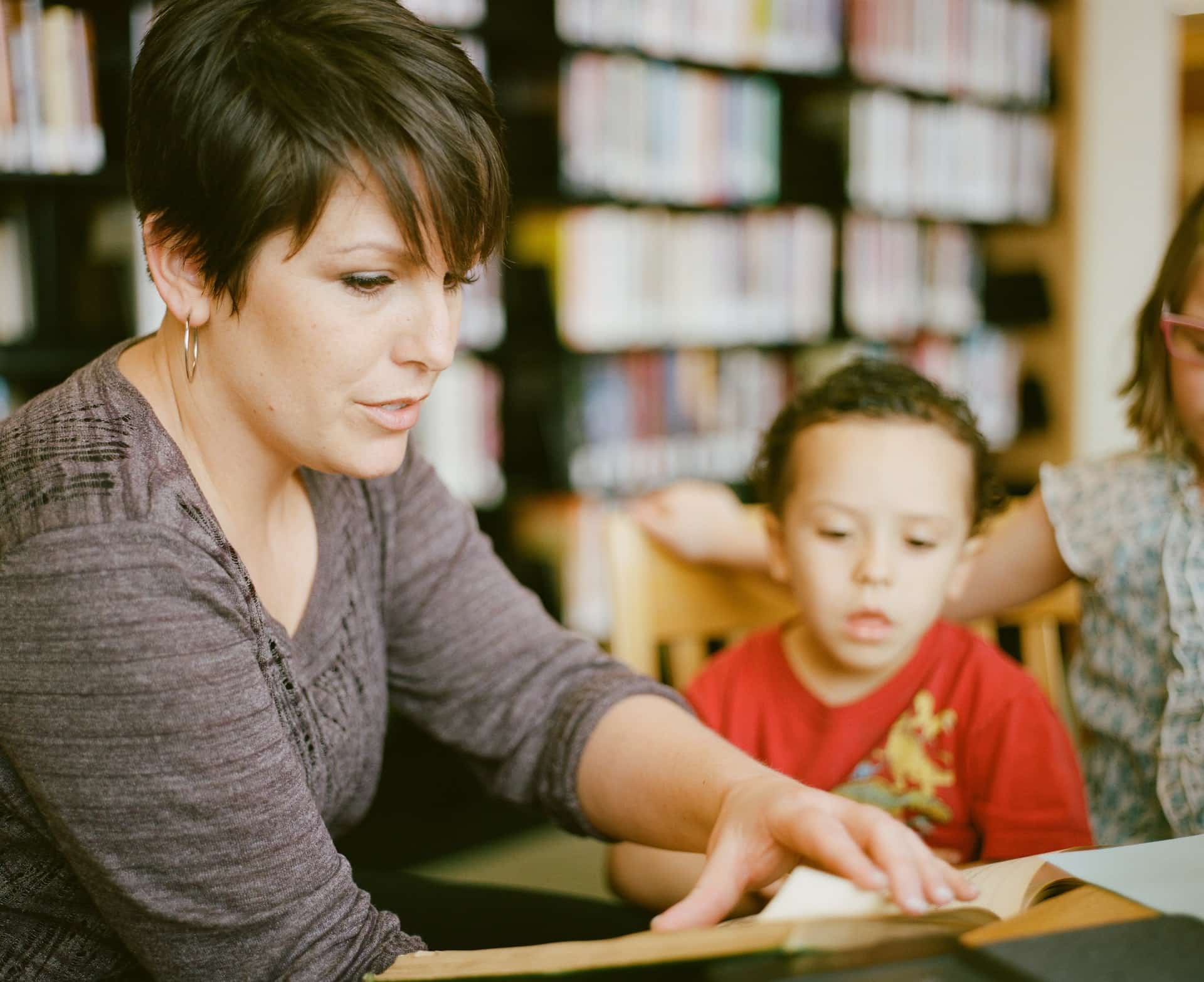You might have decided to become a French tutor because you know that shaping the next generation of thinkers and doers is one of the most vital tasks in these times. You're up for the challenge; you know you can do it well. If you're a school French teacher moonlighting as a tutor, you know that there are gaps in our education system, particularly in language instruction. You're both qualified and keen to fill them.
In that spirit, you wait for your first student. French is the second most studied language across Australia so it shouldn't be long before your schedule fills up. Besides, we're nearing the end of the term; surely there will be learners looking for exam prep or help with their coursework so they can end things with decent marks.
This waiting period is a good time to pack your tutoring kit because once that phone starts ringing, you may become too busy to plan any organisation strategies. Just as you get everything together, you get an incoming message. Are you available for lessons? If you follow these tips, you'll be more than available. You'll be ready.

Stock Up on Supplies
No matter the business, it consumes supplies. Even though you won't do the bulk of the reading or writing, you still must have something to write with and on. It wouldn't hurt for you to have a few extra books in French so your students can have something other than their textbooks to read. You'll also need supplies to keep your office running smoothly, things like a wall planner so you can pencil your clients' lessons in and a ledger to keep up with the financial side of things. We need two shopping lists, then.

Teaching Supplies
Common sense dictates that anyone giving lessons should at least have pen and paper so we'll just consider those items a given. Pens with different coloured ink would be a good idea so that, when you make corrections on your students' papers, your messages will stand out. Highlighters might not be a bad idea, especially if you know that learners aren't always well-supplied for their lessons.
On your list of nice-to-haves, include sticky notes and index cards so you and your pupils can make flashcards. Cardstock or poster board is a good idea too; it will help preserve conjugation charts, vocabulary and grammar rules lists better than notebook paper, with or without sheet protectors. Maybe some coloured pencils and markers? If you plan on tutoring small groups, you could teach your students how to mind-map, using different colours for each word type.
Take some time to search the internet for printable worksheets; your students will appreciate having something besides their workbooks and textbooks to practise their French language skills on. Many sites let you download a selection of sheets for free while the rest are behind a paywall. Some only ask that you register as a user before accessing their full library.
It might sound overly generous to invest in supplies that your student will mostly use and benefit from but there are two good reasons for you to do so. The first and most important one is that your pupils and their parents will appreciate the time, consideration and expense that you put into teaching them French. They're bound to tell their friends all about you; their word-of-mouth advertising is the best way to find students. The second reason is that you can write all of these purchases off as a business expense; who doesn't want a lower tax burden?
Office Supplies
Teaching French may be your passion but, from a business perspective, organisation trumps all. Having a well-supplied business centre will take much of the stress of business management off your shoulders. Earlier, we mentioned wall planners; such a tool would give you a better overview than writing your teaching schedule in a pocket planner or entering it in a calendar app on your phone or tablet. A filing cabinet to store all your printed worksheets and your student files, a bookcase for your French volumes and a ledger to keep track of payments should be enough to start.
Office equipment and supplies: everything from a printer to a stapler. You'll need a bag to tote all of your supplies from lesson to lesson. If you'll give lessons at yours, you need someplace for your pupils to sit. All of these are start-up costs; every business incur them. Note that, when you price your French lessons, you should include a little extra to cover these costs.
Decide on Your Lesson Format
With the supplies issue sorted, you can start organising your lessons. Such a straightforward idea can be surprisingly complex, though. What age bracket will you teach? School students or specifically those preparing for the Australian Qualifications Framework AQF exams? Adults planning a holiday in France who want to learn conversational French? People preparing for their Diploma in French Language Studies (DELF-DALF)?

These factors and others determine how you will organise your lessons. Younger learners and adults studying conversational French don't need much grammar instruction or writing practice so your lessons should place more emphasis on French pronunciation and listening skills. Conversely, AQF candidates need the most grammar instruction and writing practice. For those students, you should organise your lessons around those aspects of language studies.
Is it a good idea to incorporate tech and digital resources in your lessons? To an extent, yes. At the start of every lesson, as an icebreaker, you might play a French song or a short film clip - although, depending on the student's level, a short conversation in French would be better. An online dictionary might serve you well but manually looking up words in an actual dictionary would serve your students better. As would writing by hand versus completing worksheets on their computer.
Studies have shown a direct link between handwriting and memory. Information written by hand creates neural pathways that increase the likelihood of handwritten information being remembered; typing does not have the same effect. The same is true for looking up words in a dictionary versus online. Still, if your students want to use a stylus-equipped tablet to write on, that would be the best of both worlds because today's school students are more comfortable using their devices.
Finally, we should talk about teaching French online versus in person. If you taught French during the pandemic, you know how different it is to teach remotely. Not only do you have to keep your pupils focused on the lesson but you have an entirely different array of tools to master. Online lessons suit Conversational French learners and AQF candidates better; they're more challenging for learners needing homework help and for younger students. Teaching French online will broaden your reach so it's not wise to dismiss the idea; maybe limit your online offerings to those students who would benefit the most from them.
Your First French Lesson
Setting your parameters is one of the advantages of being a French tutor. You can choose which type, age and level of the student, decide on the most effective tools for each learner and teach from the comfort of your home office if you want. With all of the variables at play, it's hard to envision how your first French lesson might go. With that in mind, let's aim for a general template you can flesh out with your own circumstances.

Icebreaker - Warmup
It's never good to simply say "G'day, get your pencil out" and start teaching. Ask your learner how they're doing, what they think about the French language and why they chose to study it shows your interest in them; it lays the foundation for your relationship. Depending on their French skill level, you might tell a joke, pose a riddle or guide them through a few tongue twisters in French.
Teach
Introduce new information. Standard greetings and basic phrases for Conversational learners, easy vocabulary for young pupils and level-appropriate work for AQF candidates. For homework help clients, going over and expanding on the lessons they had in class ensures understanding. And then:
- Work: Now, your pupil gets busy. Vocabulary repetition drills, verb conjugation and listening exercises. Completing exercises from textbooks, workbooks or worksheets.
- Review: Go over the work together; make corrections as needed. Probe for understanding by asking questions about the study material.
- Wrap Up: assign 'homework'; end on a positive note.
When you become a French tutor, you have the luxury of designing your lessons to suit both yourself and your learners. You may select your preferred category of learner, design your curriculum and conduct your lessons in a coffee shop if you (and they) so desire. Now, with this template, you have a framework for your first and all future lessons, for every type of pupil. Bonne chance!
Summarise with AI:











